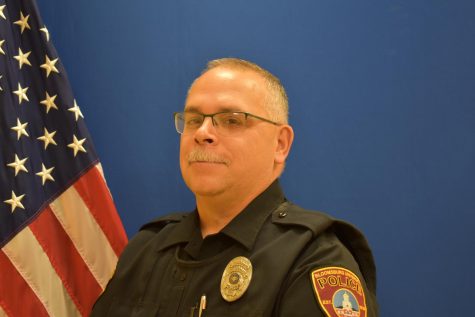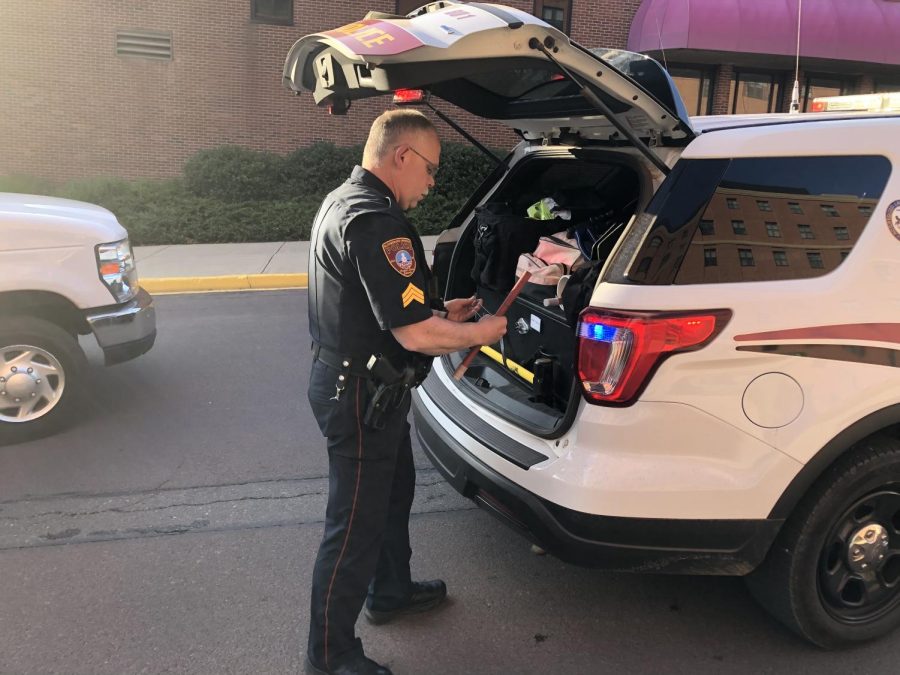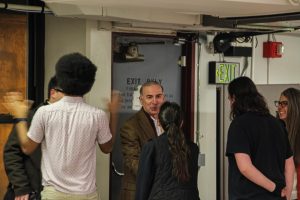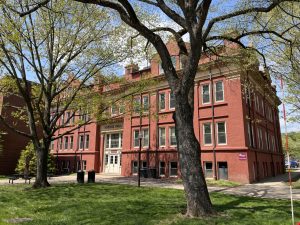Behind the Badge: A day in the life of a BU police officer
Sgt. Andrew Hirko grabs roadflares to dispense at the scene of a broken down car outside of Elwell Hall
May 3, 2023

Photo from BU Police
Whether they are patrolling the campus in their vehicles or on foot helping a student with a broken down vehicle on the side of the road, a day in the life of a Bloomsburg University police officer is more than just writing parking tickets.
Sgt. Andrew Hirko was shadowed during the department’s second shift. He opened up about how the department proceeds with its day-to-day operations.
It all starts with checking the shift turnover. A report stating the events of the day up to a new shift taking control. That is followed by a roll-call meeting.
There they are given their assignments, zone patrols, and any special details, with each officer having their own special duties besides their regular patrols. Each also has to spend an hour on foot patrol during their shifts.
They also have time before their patrols to follow up on any cases, do paperwork, or handle any special events such as having a presence at sporting events.
The size of a typical shift can vary depending on manpower and location. Sometimes they have two officers, sometimes four. In his words, he states, “It just depends on the day of the week or any events going on.”
From there, they sign out one of the vehicles they will be using or one that has been assigned to them. The department has six vehicles at its disposal.
Two are fitted with an L.P.R. system, which allows officers to see tagged license plates. Vehicles can be tagged for things like unpaid parking tickets, being stolen, or belonging to a missing person.
The system has a camera that will automatically read a plate and relay information back to the officer.
Now when an officer selects their vehicle for their shift, a routine pre-inspection of the car is performed.
Checking their county and department radios, all of the lights on the vehicle, as well as the equipment in their vehicle like road flares, animal snares, and first aid kits.
After the pre-inspection check, Hirko began his patrol, moving throughout the campus from the blue lot and country club road and making his way down to the lower campus.
The department also ensures that officers don’t maintain the same patrol route. Officers constantly adapt and make routine changes to their routes.
During his patrol, Hirko was asked how important it is for an officer to engage with the community. He said, “Our relationship with our community is really what we are here for. There are a lot of different aspects to law enforcement. Community policing is one of them.
I can give you an hour of training when it comes to active assailants, Sgt. Comstock and Officer Lennon are our R.A.D., or rape aggression defense, instructors. So they show up and show girls how to defend themselves in certain situations,” Hirko said.
“I always try and tell the officers until you get used to this job, and even then, don’t be complacent; always think if there is a medical emergency in this building, where am I gonna go in? Where is gonna be the fastest way for me to get in and give someone help?” said Hirko.
Then after making his rounds around the campus, driving in front of Elwell, Hirko assisted several students whose cars had broken down. After attempting to jump-start the car to no effect, he placed a call to university facilities.
There, they were able to bring a can of gas in an attempt to start the car, but to no avail. After making sure the students would be receiving help, Sgt. Hirko dispensed road flares until arrangements could be made for the car.
He then returned to the station. From there, any paperwork needed from the day or including the shift turn-over can be made before an officer hangs up their keys and calls it a day.


















